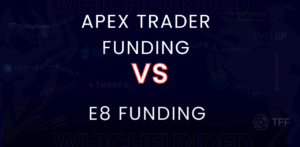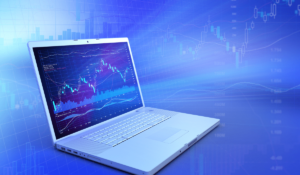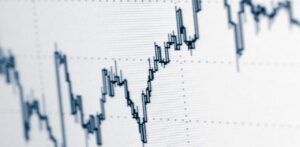Introduction
If you’re interested in venturing into the world of forex trading but feel overwhelmed by the complexities and uncertainties, you’ve come to the right place. This comprehensive guide aims to provide you with a solid foundation in forex trading, equipping you with the knowledge and skills necessary to navigate the markets with confidence.
Understanding Forex Trading Basics
Forex trading, also known as foreign exchange trading, involves buying and selling currencies in the global marketplace. Unlike other financial markets, such as stocks or commodities, which are traded on centralized exchanges, forex trading takes place over-the-counter (OTC) through a decentralized network of banks, financial institutions, and individual traders.
How to Read a Currency Quote
One of the fundamental concepts in forex trading is understanding currency quotes. A currency quote represents the exchange rate between two currencies and consists of a base currency and a quote currency. For example, in the currency pair EUR/USD, the euro (EUR) is the base currency, and the U.S. dollar (USD) is the quote currency. The exchange rate indicates how much of the quote currency is needed to buy one unit of the base currency.
Forex Pips, Lots, Margin, and Leverage
In forex trading, pips, lots, margin, and leverage are essential terms to understand.
- Pips: A pip is the smallest unit of price movement in the forex market. It represents the fourth decimal place in most currency pairs, except for pairs involving the Japanese yen, where it represents the second decimal place.
- Lots: In forex trading, a lot is a standardized unit for trading currencies. There are three main types of lots: standard lots (100,000 units), mini lots (10,000 units), and micro lots (1,000 units). Lot size determines the value of each pip movement.
- Margin: Margin is the collateral required to open and maintain a trading position. It is a percentage of the total trade size and serves as a form of security for brokers against potential losses. Margin allows traders to control larger positions with a smaller amount of capital.
- Leverage: Leverage enables traders to control positions that exceed their account balance. It is expressed as a ratio (e.g., 1:100) and determines the amount of borrowing power provided by the broker. While leverage can amplify profits, it also increases the risk of losses.
Forex Order Types and Trading Mechanics
Executing trades in the forex market involves understanding different order types and trading mechanics. Here are some common order types:
- Market Orders: Market orders are executed at the current market price. They provide immediate execution but do not guarantee a specific price.
- Limit Orders: Limit orders allow traders to set a specific price at which they are willing to buy or sell a currency pair. The order will be executed when the market reaches the specified price or better.
- Stop Orders: Stop orders are used to limit potential losses or protect profits. A stop-loss order is placed below the current market price to automatically close a position if the market moves against the trader. A take-profit order is placed above the current market price to secure profits when the market moves in favor of the trader.
Fundamental Analysis vs. Technical Analysis
Forex traders analyze the market using two main approaches: fundamental analysis and technical analysis.
- Fundamental Analysis: Fundamental analysis involves evaluating economic indicators, geopolitical events, central bank policies, and other factors that influence currency values. Traders who rely on fundamental analysis aim to identify long-term trends and make trading decisions based on economic fundamentals.
- Technical Analysis: Technical analysis focuses on studying historical price patterns, chart patterns, and indicators to predict future price movements. Traders who use technical analysis believe that historical price data can provide insights into market psychology and help identify short-term trading opportunities.
Forex Trading Psychology and Risk Management
Successful forex trading requires not only knowledge of trading strategies but also the right mindset and effective risk management. Here are some key aspects of forex trading psychology:
- Emotion Control: Emotions, such as fear and greed, can cloud judgment and lead to impulsive trading decisions. Controlling emotions and maintaining discipline are crucial for long-term success.
- Patience and Persistence: Forex trading is not a get-rich-quick scheme. It requires patience and persistence to develop skills, adapt to market conditions, and refine trading strategies over time.
- Risk Management: Managing risk is essential to preserve capital and withstand market fluctuations. Traders use techniques like setting stop-loss orders, managing position sizes, and diversifying their portfolios to mitigate risks.
Choosing the Right Forex Broker
Selecting a reliable and suitable forex broker is crucial for a trader’s success. Consider the following factors when choosing a forex broker:
- Regulation: Ensure that the broker is regulated by reputable financial authorities to ensure the safety of your funds and fair trading practices.
- Trading Platform: Evaluate the trading platform’s features, user-friendliness, and reliability. A good trading platform should provide real-time market data, advanced charting tools, order execution capabilities, and a user-friendly interface.
- Spreads and Fees: Compare the spreads (the difference between the buying and selling prices) and fees charged by different brokers. Lower spreads can reduce trading costs and increase profitability.
- Customer Support: Check the availability and quality of customer support services offered by the broker. It’s essential to have access to prompt and reliable support in case of any issues or questions.
- Account Types and Minimum Deposit: Consider the account types offered by the broker and the minimum deposit required to open an account. Different account types may have varying features and trading conditions.
- Educational Resources: A reputable broker should provide educational resources, such as tutorials, webinars, and market analysis, to help traders improve their knowledge and skills.
Common Queries about Forex Trading
Q: Can I start forex trading with a small amount of money?
A: Yes, you can start forex trading with a small amount of money. Many brokers offer mini or micro accounts that allow traders to trade smaller lot sizes and require lower initial deposits. However, it’s crucial to manage your risk properly and avoid risking more than you can afford to lose.
Q: Is forex trading risky?
A: Yes, forex trading involves inherent risks. The forex market is highly volatile, and prices can fluctuate rapidly. It’s essential to educate yourself, develop a trading plan, and practice risk management strategies to minimize potential losses.
Q: How can I learn more about forex trading?
A: Besides this comprehensive guide, there are various resources available to learn more about forex trading. These include online courses, webinars, books, forums, and demo trading accounts offered by brokers. It’s important to approach learning with dedication and continuously update your knowledge as the market evolves.
Key Takeaways
- Forex trading involves buying and selling currencies in the global marketplace.
- Understanding currency quotes, pips, lots, margin, and leverage is crucial for successful trading.
- Different order types and trading mechanics help execute trades effectively.
- Fundamental and technical analysis are two main approaches to analyze the forex market.
- Forex trading psychology and risk management are key factors for long-term success.
- Choosing a reliable forex broker with favorable trading conditions is essential.
- Start with a small amount of money, manage risks, and continue learning to improve your trading skills.
As you embark on your forex trading journey, remember that success requires dedication, continuous learning, and adapting to changing market conditions. Keep refining your strategies, managing risks effectively, and maintaining discipline. With time and experience, you can achieve your trading goals. Good luck!








